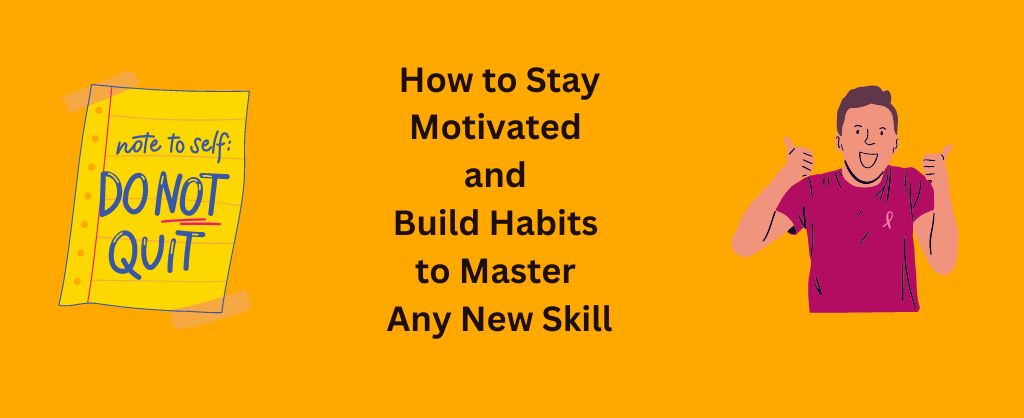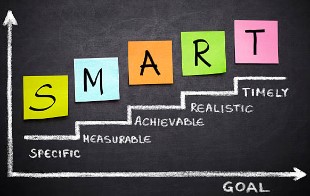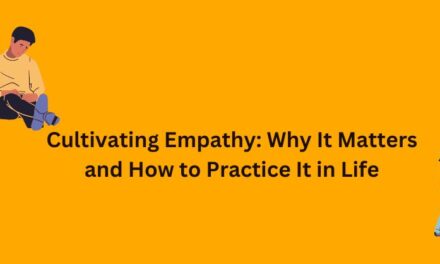How to Stay Motivated and Build Habits to Master Any New Skill

Learning a new skill takes time, effort, and dedication. Whether you want to learn to play an instrument, speak a new language, or master a sport, having the right mindset and habits is key to success.
Content
- Finding Your Motivation
- Setting Goals
- Creating a Practice Schedule
- Making Practice More Effective
- Building Lasting Habits
- Dealing with Frustration and Plateaus
- Conclusion
Here are some tips on how to stay motivated and build good habits as you embark on acquiring a new skill.
Finding Your Motivation
Before diving into learning something new, it’s important to connect with your motivation. Why do you want to learn this skill? What drew you to it?
Keeping the bigger picture in mind will help fuel you through the inevitable challenges and frustrations.
Here are some ways to find your motivation:
Connect with Your Passion
Focus on what excites you about this skill. Is it the elegance of speaking French? The thrill of hitting a perfect golf swing?
“When you discover your passion, you discover your power. Listen to your heart and you will find the way.”
Get in touch with the joyful anticipation of what’s to come, and let it fill you with infectious enthusiasm. When challenges arise, channel that passion to push forward with purpose.
Keep your inner fire kindled, and let passion propel your potential. Tap into your passion and let it energize your learning.
Visualize the End Result
Imagine what it will feel like to have this new skill mastered. Picture yourself fluently conversing in Spanish or flawlessly playing the piano piece you’ve dreamed of performing.
“When the end result seems distant, visualize each step ahead. What you can conceive, you can achieve.”
Keep this vision in mind – it’s where you’re headed!
Focus on Growth
Approach learning as a journey of growth and self-improvement, not an end product.
“Growth requires stepping outside comfort zones. The rewards of progress make temporary discomfort worthwhile.”
Remind yourself often that this process is about growth, not an end result. Appreciate each incremental gain, however small.
Enjoy the process – the incremental steps forward, new things discovered – not just the destination.
Find Role Models
Look to people who inspire you with their skill level. Let them motivate you to keep practicing to reach higher levels of aptitude.
“When the way forward seems dim, look to role models as guides. Their example illuminates the route to growth.”
Setting Goals
Well-defined goals are tremendously helpful for staying on track as you learn. Be sure your goals follow SMART criteria:
- Specific: Frame goals around precise skills you want to attain.
- Measurable: Quantify your goals so you can track progress.
- Achievable: Set realistic goals you can reach with effort over time.
- Relevant: Ensure goals align with your motivations and larger vision.
- Time-bound: Put deadlines on goals to create structure and accountability.
Here are some examples of effective SMART goals for learning a skill:
- Have a 5-minute conversation in French by March 1st.
- Memorize 20 new Italian vocabulary words per week for the next 3 months.
- Complete Suzuki Violin Book 1 by December.
- Lower my golf handicap from 18 to 14 by end of summer.
Revisit your SMART goals often to ensure you’re on track and making progress. Adjust timelines or levels if needed but keep working towards attainable targets.
Creating a Practice Schedule
Consistent, regular practice is essential when gaining any new skill. Work towards creating a schedule that fits your life and provides the frequency and duration needed to see improvement.
Figure Out Optimal Frequency
How often you need to practice will depend on the skill and your own abilities. As a general rule, shorter practice sessions done more frequently are most effective for skills with a physical or technique component. For language or music skills, 15-30 minutes daily is ideal. Other tips:
- Start with 3-4 times per week and increase frequency once you’ve cemented the habit.
- Schedule practice for the same time slots each day for consistency.
- Keep rest days to allow skills to consolidate while giving your brain and body a break.
Determine Ideal Session Length
Again, optimal session length varies by skill but shorter is often better when starting out.
- For physical skills, start with 15-20 minute practice sessions and work up to 45-60 minutes as fitness and focus improve.
- For cognitive skills like languages or music, aim for 20-30 focused minutes each session.
- End sessions before fatigue sets in and quality declines.
Making Practice More Effective
How you structure your practice will greatly impact your progress and skill acquisition.
Follow these tips to get the most out of the time you put in:
Create a Focused Space
Find or create a dedicated practice space. Have the materials, equipment, and resources you need organized and close at hand. Minimize distractions by turning off devices and clearing away clutter.
Carve out an area designated solely for diligent skill-building. Eliminate disorder and diversions from this sanctuary so your mind can immerse fully.
Gather the requisite tools and have them conveniently close. Structure and simplicity will help concentration flourish. Come to this intentional oasis ready to devote your mental energies toward incremental improvement.
Follow a Plan
Create a practice outline to provide structure and focus. Thoughtful planning allows for productive practice. Break skills down into smaller parts. Work on improving each piece separately. Identify and focus on problem areas.
“A solid plan channels energy into the necessary steps that pave the road to success.”
Slowly put the pieces back together into the full skill. Follow an intentional process. Progress comes from preparation.
Isolate Difficult Areas
Identify weaker areas and spend time honing these skills specifically. Don’t just practice what you’re already good at. Challenge yourself to improve weaknesses.
When developing any skill, it is tempting to only practice what comes easily. However, real growth happens when we confront our weaknesses. Make it a priority to identify lagging or difficult areas and devote time to intentionally improving them.
Do not shy away from challenges or let pride cause you to avoid inadequacies. Honest assessment of your shortcomings, followed by targeted practice to correct them, will lead to balanced mastery.
The rewards of focusing on your weak points will far outweigh the discomfort.
Simulate Real Scenarios
Practicing should mirror real world conditions as much as possible. For sports, use full gear and practice on regulation fields/courts. For music and language, practice performing for others.
Record Your Sessions
Use video or audio recording to review your practice. Note areas for improvement. Seeing tangible progress will keep you motivated.
Reflect on Performance
After each practice session, reflect on what went well, what needs work, and your plan for next time. Review your goals and adjust your plan as needed.
Building Lasting Habits
To truly master a skill requires establishing habits so regular practice becomes second nature.
Use behavioral science tips to build lasting habits:
Start Small
Commit to a practice frequency and duration you can manage. Just 10-15 minutes several times a week. Once this small habit sticks, gradually increase.
Building up slowly allows the seeds of diligence to take root. A modest start leads to lasting consistency.
Attach to Existing Habits
Link your new habit to an already automatic behavior like morning coffee or evening brushing teeth.
Post reminders on these daily triggers.
Schedule Ahead
Block out practice sessions well in advance in your calendar or planner. This precommitment makes you more likely to follow through.
Create Accountability
Share your practice schedule with others. Engage your teacher, friend, spouse, or child in keeping you honest.
Telling others about your goals makes you more likely to achieve them. Public promises create accountability.
Allow Flexibility
Know that motivation ebbs and flows. Accept the occasional missed or shortened session.
Get right back on track at the next scheduled time without self-judgment.
Monitor and Reward Progress
Track adherence to your practice goals. At the end of each week or month, acknowledge and reward yourself for progress made, which will reinforce the habit loop.
Dealing with Frustration and Plateaus
Learning a new skill is not always linear. Prepare for times when progress stalls or you begin to feel frustrated and bored. Have strategies ready to recharge motivation.
Shift Your Mindset
Remember that plateaus are normal and expected. View them not as failures but opportunities to refresh, refocus, and renew excitement as you gain competence.
Take a Break
Step back for a short time when becoming overly frustrated. Recover mentally and physically. Reflect on factors that may be blocking your progress.
Make It Fun Again
Inject variety, play, and exploration back into practice. Improvise, use your imagination, learn something new. Rediscover the joy that initially motivated you.
Collaborate and Learn From Others
Find classmates, fellow musicians, or teammates to learn and practice with. Exchange tips and encouragement. Build your skill socially.
Remember Past Success
When discouraged, reflect on how far you’ve come. Review old practice videos/recordings and appreciate your improvement over time. Reconnect to your capability and passion.
Conclusion
Staying motivated over the long-haul of learning a new skill is challenging.
But by tapping into your passion, setting concrete goals, building lasting habits, and having strategies to overcome obstacles, you can achieve mastery and look back proudly on all you have accomplished through consistent, mindful practice.














